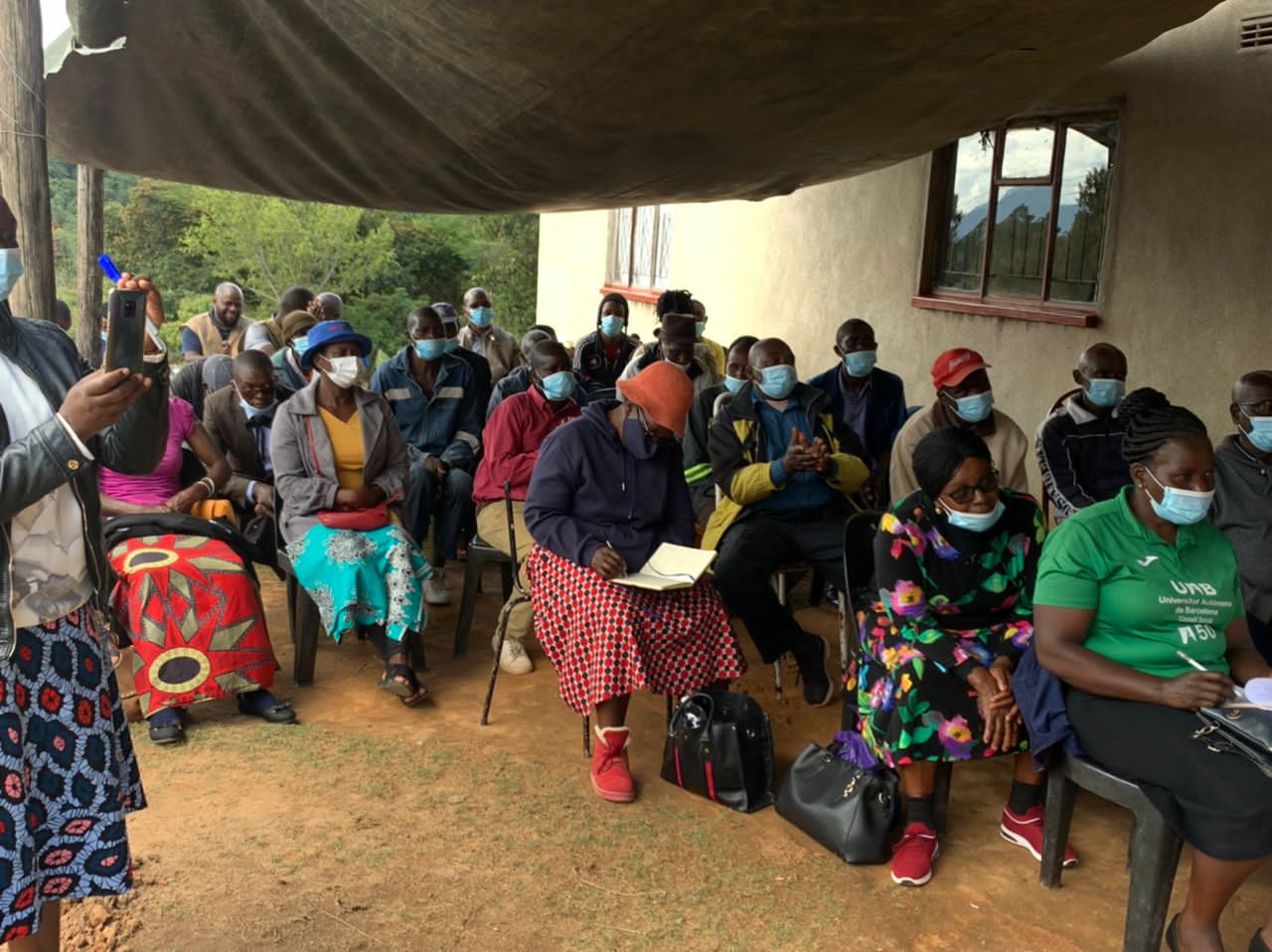
By Nyasha Dube
Agritex has urged Mutasa district based female farmers to practice climate smart agriculture so as to improve their yields.
This comes at a time when KAS has intensified its womens land rights advocacy programme which has benefitted women from Shurugwi, Mutasa and Lupane.
Speaking at the sidelines of a recently held knowledge exchange visit in Mutasa District, Agriculture extension officer Manjeese said women farmers can reap more from the small portions of land at their disposal.
“We encourage women to invest in soil testing and also organic fertilizers so that they can maximize their yields. The climate is changing and farmers have to adapt” she said.
Manjeese added that women also need to take advantage of the farming inputs availed by government and venture into the Pfumvunza program, which has proven to be critical in ensuring food security.
“With the Pfumvudza concept women can harvest more from small pieces of land if they do it properly, and its sustainable.” Said Manjeese.
KAS recently held a traditional leaders exchange visit which brought together women and leaders from Shurugwi and Lupane to witness how the womens land rights programme is benefitting women in mutasa.
Many women attested to benefiting from the project, which they said empowered them with knowledge on their land rights.
Chipo Barara who was the host said she managed to take care of her siblings and purchase a piece of land through this programme.
“I’m indebted to KAS and CCJP for empowering me with knowledge on my land rights. Right now I have my own piece of land where I can farm and feed my family. It was a long and tough journey but today I am here and that’s all that matters,” Barara said.
Usher Afunso, a young woman caring for her daughter with disability said this programme empowered her a lot.
“As women who care for persons with disabilities we face a lot of challenges when it comes to owning assets and even fulfilling our caregiving responsibilities. I was lucky enough to get help from KAS through CCJP and since then I never struggled to provide for my daughter,” she said.
Most women in Mutasa now survive on banana farming as they own pieces of land, and according to community based mobilisers in the area, this has helped in reducing food insecurity and malnutrition, with statistics from the local clinic showing a decrease in kwashiorkor
Village head Rori from Mutasa hailed the program saying most women in his village have become self-sufficient, and this has helped in eliminating cases of Gender Based Violence, as most people are now aware of women’s rights.
“It makes me happy to see more women coming to request for pieces of land. We are actually running out of land to give women but they are more than willing to own their own farms. It shows progress and we wish KAS would continue empowering more women in communities,” he said.
Traditional leaders from Shurugwi and Lupane were in awe as they witnesses how land is being progressively utilized in Mutasa, mostly by women, indicating a total change in communities’ perceptions to women’s land rights.
Of interest was also how more women are taking up positions of becoming traditional leaders despite patriarchal beliefs that women are supposed to be led by men.